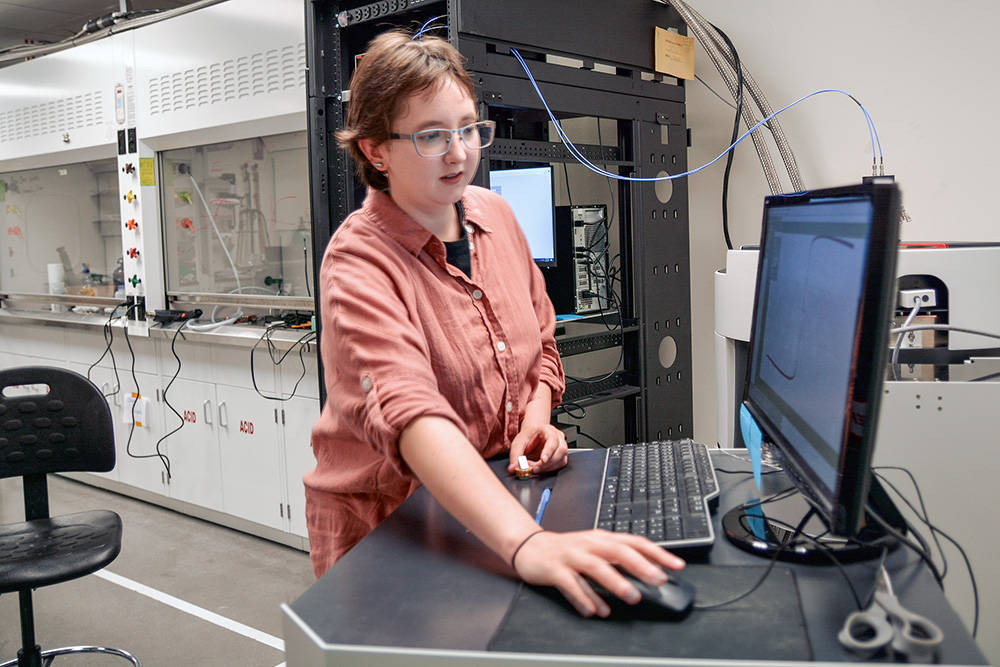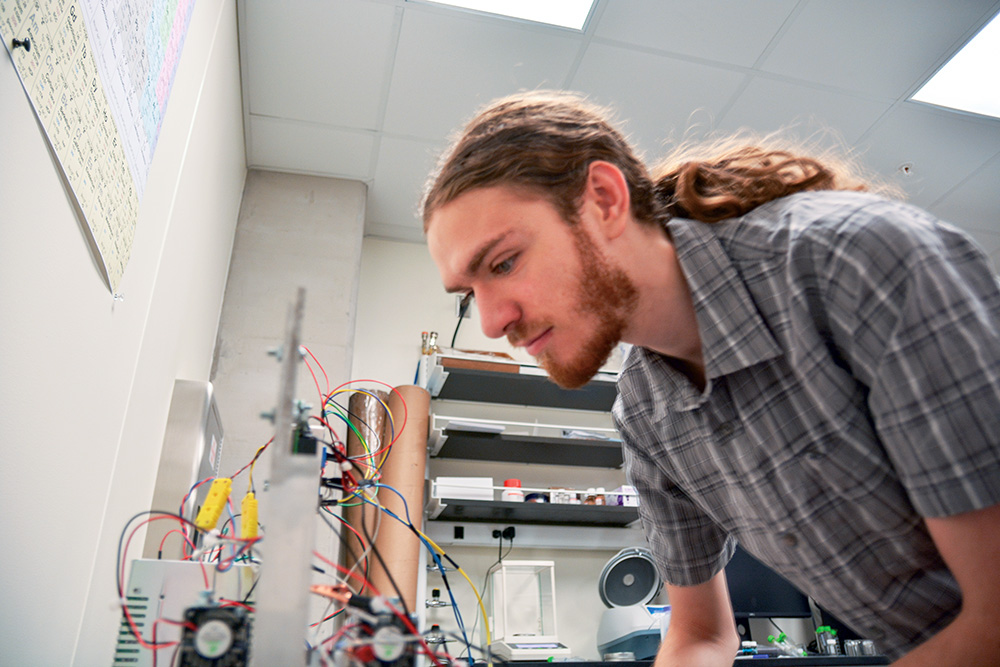
Lizabeth Quigley
Neither Lizabeth Quigley nor Noah Hobson majored in Materials Science and Engineering (MSE). Quigley graduated last May from the Department of Mechanical, Aerospace and Biomedical Engineering, while Hobson majored in Computer Science. Both of these recent graduates, however, learned the ropes of research in Dustin Gilbert’s Advanced Materials and Manufacturing lab.
“Our research group is incredibly multidisciplinary,” said Gilbert, an MSE assistant professor. The group is focused on nanomaterials and regularly collaborates with researchers in food sciences, ecology, and other disciplines. “It’s so beneficial because we’re all experts in our respective domains, but a lot of the most interesting science out there lives at the boundaries, where no one has all the experience to accurately investigate.”
Gilbert recruited Quigley in 2019 for an undergraduate research role funded in part by the Center for Materials Processing. “He was doing things I’d never heard about,” said Quigley. “Learning new things is so exciting to me, and each project I’ve done in his lab focuses on something a little different.”
“Nanomaterials are still an unknown field in many ways,” Gilbert said. “For undergrads who are learning so much foundational knowledge in class, nanomaterials are an opportunity to walk into something you can’t look up in a book. It’s a powerful experience.”
In the lab, Quigley ran simulations, prepared samples, analyzed data, and forged relationships with graduate research assistants. Her experience prepared her to participate in the National Institute of Standards and Technology (NIST) summer fellowship and to take a leading role in her group senior design project here at the University of Tennessee. She noted that her professor and teammates trusted her ability to run a significant part of that project.
Gilbert initially hired Hobson to create a website for his lab; Hobson soon found his long-term niche within the group.
“I listened for people talking about processes that took too long on the computer,” he said. “I learned how data files were used so I would know what would help in the workflow.”
Gilbert saw the potential. “Noah knows programming and hardware backward and forward. I had an idea for a machine at that time, but our lab didn’t have the right skillset. He was a match. Starting then, I would say to him, here’s what I want, can you figure out how to get there.”

Noah Hobson
Hobson took on larger projects over time and learned how to run projects from start to finish. Over the past summer, he participated in the 2021 NIST summer fellowship. Now, he’s a first-semester Ph.D. student in Computer Science at Purdue University. His long-term goal is to work at a national lab.
“My current field of study is basically how we use English to communicate with computers,” Hobson said. “The field is changing all the time. The exciting part to me is doing something nobody’s done before.”
Quigley also started as a PhD student at Purdue this fall. “I didn’t consider grad school before starting at the lab. I discovered a love for research, and I wanted to do more.”
Gilbert is proud of both researchers for pursuing grad school. Gilbert pointed out that Quigley entered the Material Sciences program at Purdue. “I once asked her why she was in MABE,” he said. “She told me it gave her the most diverse experience to satisfy her curiosity. Now, she’s switched over!”
“I think Liz and Noah both have a thirst to understand the unknown,” Gilbert said. “Now they’ve learned they have the tools and talents to find answers to their questions. The world’s a giant Indiana Jones adventure, and they can explore what they want.”